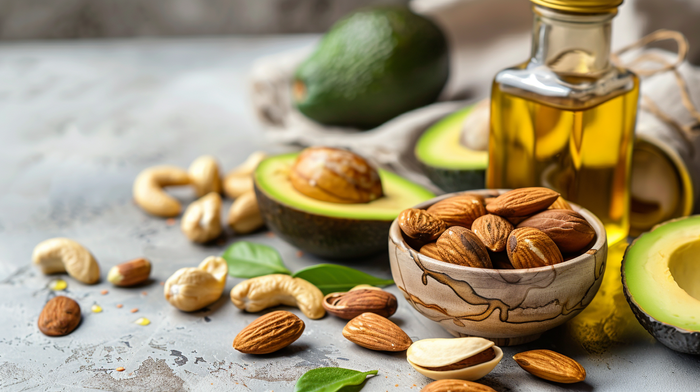Dietary fats: which to limit and which to introduce for health?

Fats play a key role in our diet, providing energy, supporting brain function and enabling the absorption of certain vitamins and minerals. However, not all fats are created equal. Some can contribute to heart disease, obesity and other health problems, while others are essential to our health. In this article, we'll take a look at which fats you should limit and which you should incorporate into a healthy diet to enjoy good health.
Fats to limit

Among the fats worth limiting in the diet are primarily trans and saturated fats. Trans fats are formed by the hardening of vegetable oils and are often present in processed foods such as cookies, crackers, as well as some margarines and fast foods. Scientific studies clearly show that trans fats increase the risk of heart disease by raising levels of bad LDL cholesterol and lowering levels of good HDL cholesterol. Saturated fats, found mainly in animal products such as red meat, butter and fatty dairy products, can also contribute to an increase in bad cholesterol and the risk of cardiovascular disease.
Fats beneficial to health

On the other hand, there are fats that are beneficial to our health and should be part of a balanced diet. Among the most important of these are monounsaturated and polyunsaturated fats, including omega-3 and omega-6 acids. Monounsaturated fats can be found in olive oil, avocados, nuts and seeds. They have a beneficial effect on cholesterol levels, lowering LDL levels, and can help regulate blood pressure and reduce the risk of heart disease. Polyunsaturated fats, including omega-3 fatty acids, are present in fatty fish such as salmon, mackerel and sardines, as well as flaxseed, walnuts and canola oil. They are crucial for brain and heart health, help fight inflammation and may contribute to lowering the risk of cardiovascular disease.
How to balance fats in the diet?
To maintain a healthy balance of fats in the diet, it is important to reduce the intake of trans and saturated fats, while increasing the proportion of monounsaturated and polyunsaturated fats. Here are some practical tips on how to do this:
- Choose lean protein sources such as skinless poultry, fish and legumes.
- Cook and bake using healthy oils, such as olive oil or canola oil, instead of butter or lard.
- Incorporate more nuts, seeds and avocados into your diet, which are rich in monounsaturated fats.
- Eat oily fish regularly to ensure that you get an adequate dose of omega-3 fatty acids.
- Avoid processed foods rich in trans fats and saturated fats.
Summary
Choosing the right fats to include in the diet is crucial to maintaining good health. By limiting trans and saturated fats while increasing our intake of monounsaturated and polyunsaturated fats, we can significantly improve our blood lipid profile and reduce the risk of many diseases. Remember that healthy eating is not about eliminating fats from our diet altogether, but about choosing those that support our health.




